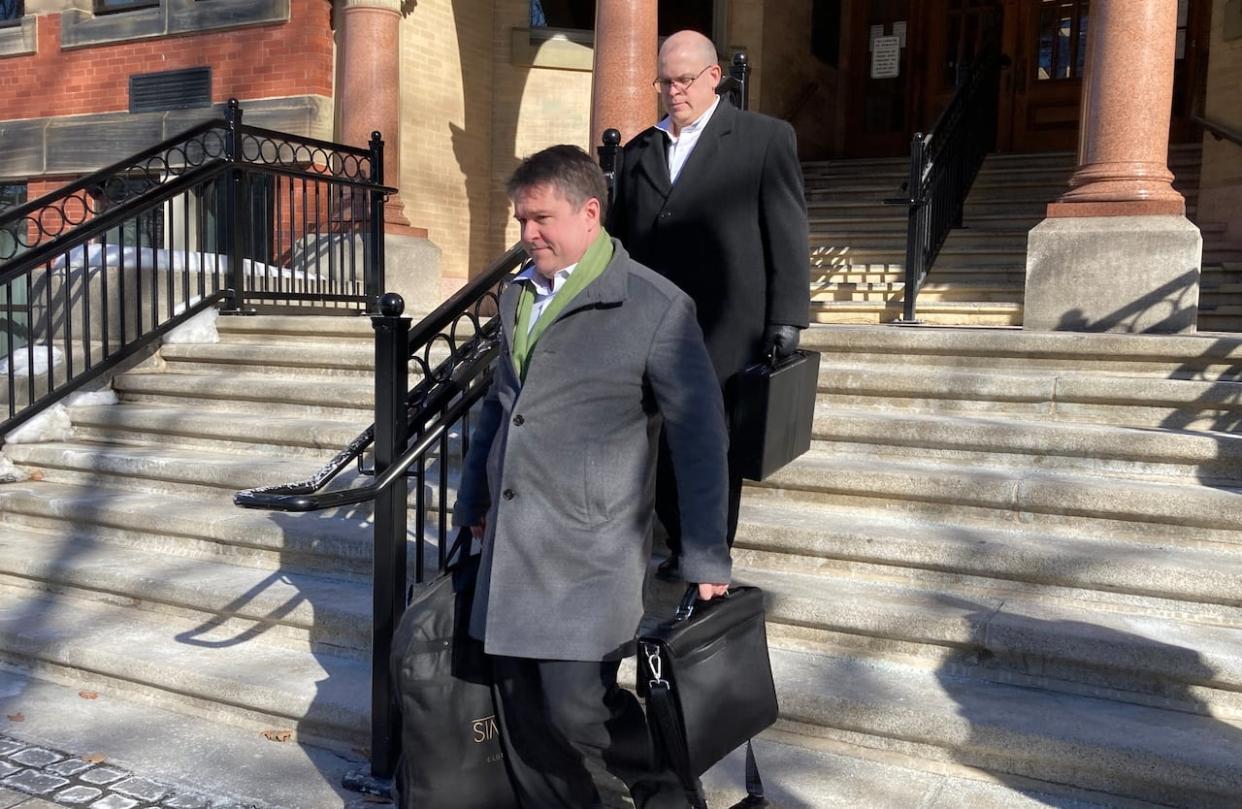Top N.B. court to rule Monday on child protection 'gap'

The New Brunswick Court of Appeal says it will rule Monday on whether it can fill a legal "gap" created by a legislative mistake that accidentally repealed child-protection sections of a provincial law.
The panel of three justices suggested during arguments Friday morning that they accept the government's argument that they can look at what the legislature's intentions were when MLAs passed the flawed bill — and that those intentions were clear.
"There's no question of legislative intent," said Justice Brad Green, adding it was clear the legislature didn't plan to "embark on a bizarre social experiment" to leave no child protection law in place for six weeks.
Chief Justice Marc Richard agreed that to assume otherwise would be "such a monumental absurdity as to defy any logic."
Government lawyer Michael Hynes argued that legal precedent allows the court to take into account the legislature's intention — "a seamless transition from one act to another" — in making its decision.
It can, in effect, "read in" to the law that MLAs didn't mean for the bill to take effect Dec. 13.
Richard said the court will deliver an oral ruling Monday at 2 p.m.
The gap was created when the legislature passed the bill without a line setting out when it would come into effect.
Without that line, it took effect immediately when royal assent was granted Dec. 13, repealing sections of the Family Services Act.
A new law, the Child and Youth Well-Being Act, had already been passed but had not been proclaimed — meaning no child protection and adoption provisions were in force until cabinet put the new law into effect Jan. 26.
Gap cases involve 127 children
In an affidavit in the case, the government said 80 new child protection cases involving 127 children were opened during the 43-day gap.
Eleven children were given protective care status, two new foster families were approved, seven kinship placements were approved and 18 children were taken into provincial guardianship during that period, the affidavit said.
"Potentially this gap would have really severe effects on children and their families," Hynes said in court Friday.
The government filed the reference case with the court of appeal asking for its opinion on whether there was a legal gap and, if so, whether the courts have the authority to fill it somehow.
While its answers will not be binding, the justices can give legal direction to family court judges on how to handle any applications to overturn rulings issued during the gap.
Richard pointed out Friday that a 1985 Supreme Court of Canada decision in a reference case found that all of Manitoba's statutes were invalid because they existed in English only.

The gap was created when the legislature passed the bill that lacked a line setting out when it would come into effect. (Pat Richard/CBC)
But, he added, the court also issued an order stopping its decision from having any effect to give the Manitoba legislature the time it needed to pass French versions of the laws.
He said the court of appeal might be able to do something similar in the child protection case.
Hynes argued that even if court found the gap existed, it would only affect a narrow set of rulings, and that precedent dictates that cases already decided could not be reheard.
The government also argued that the court could use the legal doctrine of parens patriae to protect vulnerable children with no way of defending their own interests.
Before Friday's hearing began, another appeal court justice, Denise LeBlanc, heard a last-minute application by two law school professors to intervene in the case as friends of the court.
Bruno Gélinas-Faucher of the Université de Moncton and Paul Warchuk of the University of New Brunswick missed the court's 4:30 p.m. Wednesday deadline to apply.
They said they hadn't been able to view the government's filings in the case, which have been publicly available at the court's office since Jan. 30.
Government lawyer John Gillis argued against their motion, saying it didn't explain when they first heard about the case or offer any reasons why they didn't apply before Wednesday's deadline.
"I would understand if they both said 'we were in a coma,'" Gillis said.
He also said they failed to explain what particular expertise or perspective they had to offer the case.
LeBlanc agreed and rejected their motion.


